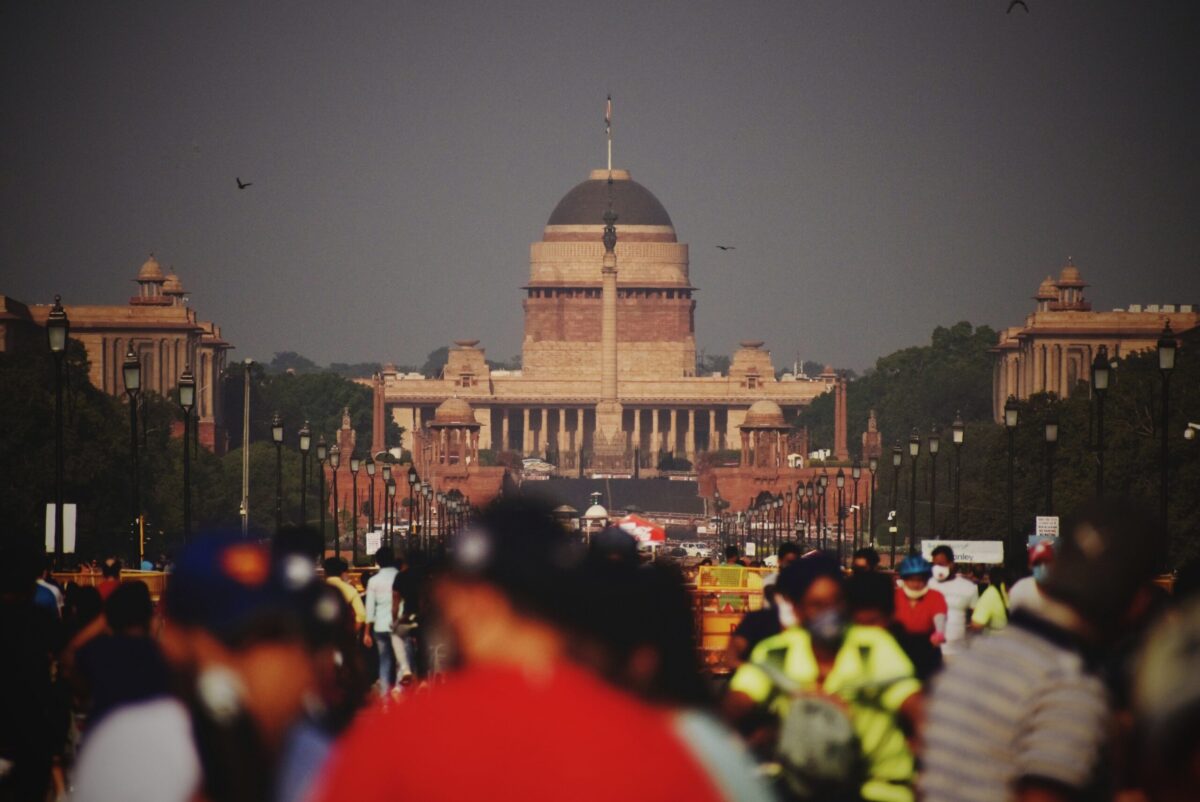The president and the governors should transcend politics. The president must be allowed to prepare his own address to Parliament, rather than behave as a spokesperson for the prime minister. Governors must act as independent links between the Union and states rather than as partisan appointees.
The Motion of Thanks on President Ram Nath Kovind’s address witnessed fiery and articulate speeches from members of Parliament. On 4 February, during the same motion, Manoj Kumar Jha, a Rajya Sabha MP from Bihar, put forth a profound idea. He appealed to the present government – and to any others that may come in the future – to make the president’s address a non-partisan document.
Not a Puppet President
The Constitution of India provides for a parliamentary form of government, vesting real authority in the Council of Ministers headed by the prime minister. As a result, the president of India is a nominal executive. The president is bound to act by the advice tendered by the Council of Ministers, which was concretised by the 42nd Constitutional Amendment Act.
At the same time, that does not mean that the office isn’t one of importance. The president is a symbol of the unity and integrity of the Union of India, which is proved by the manner of their election. The electoral college for presidential elections consists of not just elected members of Parliament but also elected members of state legislative assemblies (MLAs). Moreover, MPs and MLAs have an equal say in the election. This parity is ensured by deriving the vote values of MPs from the total vote values of all MLAs.
Thus, the president is not merely one who signs off on the Union government’s actions; they are a representative of all the states in the Union. They remain in office till the completion of their term, irrespective of the prime ministers who come and go. Important legislative, diplomatic, judicial and military responsibilities are vested with the president, where they are bound by the advice tendered to them.
A Non-Partisan President’s Address
Therefore, given the very nature of his office, the president must, in the interest of furthering parliamentary democracy, be given the discretion to prepare his address to the Parliament. The Parliament already houses the ‘real’ executive – the prime minister and his Council – to trumpet the achievements of the government. What it lacks is a balanced view, to be presented by an apolitical entity that could set the tone of debate in the right direction.
The president could point out the many achievements of the government in power while mentioning the shortcomings in its performance. The interests and demands of different states and their governments could be presented to the Parliament. This would turn the present meaningless practice into one which realises cooperative federalism. Opposition leaders could put forth their concerns and critiques to the president, requesting him to cover them in his address.
The president could also highlight the problems faced by India’s independent institutions. The judiciary, for example, has consistently lacked funds and infrastructure. A single mention by the president could bring such issues to the limelight. Journalists, teachers, lawyers, scholars, students and professionals could all write their concerns to the president, who could present a meaningful roadmap in front of the Parliament. The address can be one of constructive criticism and democratic rigour by accommodating interests from different sections of society.
The British Parliament conducts a similar address by the nominal head of state, the Queen. The ruling government prepares the speech just as in India. But as a republic, and the world’s largest parliamentary democracy, shouldn’t India step up and set new healthy norms for democracies in the 21st century?
Concurrently, the decline of India’s Parliament is a matter of growing concern. The prime minister must lay down his vision and achievements in Parliament himself through his Motion of Thanks, instead of forcing the president to do it for him. He must respond to concerns raised by the president and engage with the Opposition for solutions. The address must thereby become a means to hold the executive more accountable.
A Non-Partisan Governor
On 17 February, Kerala stood on the verge of a constitutional crisis. The state governor, Arif Mohammed Khan, had refused to sign the policy address which he was due to deliver the next day. The state legislature was to start its budget session with the customary address by the governor. After much drama, the government reached a compromise with the governor, by removing an official who had drawn the governor’s ire.
Next door in Telangana, the governor’s address was bypassed by the ruling Telangana Rashtra Samithi (TRS) government on the technicality of the previous session not being prorogued. In West Bengal, sloganeering by the opposition Bharatiya Janata Party (BJP) and the chaos that ensued saw the governor read a line of his address and leave.
The same case could therefore be made for a non-partisan governor in the states. But given the current state of the office, much more needs to be addressed.
The office of the governor, which lies at the heart of Indian federalism, is now a friction point in the relationship between the Union and the states. Governors are often described as agents of the Union at the state and were borrowed from the colonial-era Government of India Act 1935, where the governor acted as an agent of the viceroy and his Executive Council. But 75 years down the road, with heightening tensions, reimagining state hierarchies without the governor – at least in its current form – is of utmost importance.
In recent times, the Tamil Nadu governor has blocked important bills, the West Bengal governor has gotten into public tiffs with the chief minister, and the Kerala governor has alleged being pressured into making appointments in the state university. Popularly elected state governments are hence being infantilised by the Union government through the office of the governor.
The Constituent Assembly intensely deliberated on the governor’s post before settling on the present conditions of office. It was not meant to be just an agent of the Union in the states, but a link held by an independent person to aid harmonious relations. They were to be appointed by the Union in consultation with state governments, and were vested with emergency and discretionary powers, thereby safeguarding the Union while not diluting federalism. The powerful governor is now being misused, with the post now nothing more than a hindrance to effective governance.
The Sarkaria Commission Report of 1987 had backed the idea of an independent governor as discussed by the Constituent Assembly. It also recommended fixed terms, so as to reduce the influence of the Union government on the governor. The report of this Commission and many that followed need to be dusted and implemented to revitalise the office and Indian federalism.
The offices of the president and the governor should transcend everyday politics and mediocrity. An apolitical president must be allowed to take a step further by preparing his own address. The political governor’s post must be examined and overhauled to repair Union-state relations. The quality of debate in the Parliament, the federal nature of the Union, and ultimately, the health of Indian democracy can be put on the path to recovery only once these important offices are reformed.
Siddharth Mohan is a student at St. Joseph's College Autonomous, Bangalore. He is currently pursuing a Bachelor's degree in Economics, Political Science and Sociology.


